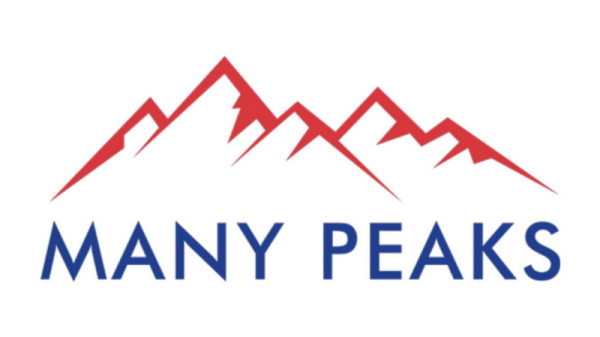The Federal Bureau of Prisons has long been an agency in crisis, with poorly managed facilities that are unsafe for inmates and employees alike.
In March, The Washington Post reported on three critical federal watchdog reports released that month alone and the BOP’s inclusion last year on the Government Accountability Office’s biennial “High-Risk List” because it has such serious, ongoing problems.
Now, finally, Congress is working to change the BOP’s noxious reputation with last week’s 41-1 approval of the Federal Prison Oversight Act, by the often partisan House Oversight and Accountability Committee.
Perhaps by coincidence, the bureau this week announced the closing of one of the most disgraceful prisons, the Federal Correctional Institution in Dublin, Calif., a women’s facility that the Associated Press reported had gained the moniker “rape club” among workers and prisoners. Even a former warden and chaplain there were convicted on sexual abuse charges.
Instead of calling for new facilities or big staffing increases, the bill focuses on transparency and an “inspection regime” bolstered by an empowered Justice Department inspector general and a new ombudsman position exclusively for the prison agency. With “access to all Bureau facilities” at any time, without prior notice, as the bill provides, they could shine light on the system’s dark and dangerous practices.
Rep. Lucy McBath’s motivation to introduce the bill was personal, but not in the way you might expect.
“My son, Jordan Davis, was killed at just 17 years old by a man with a gun who is now serving a life sentence in prison,” the Georgia Democrat said by email. “Through my family’s pain, I have found the strength to forgive my son’s killer. I heard from advocates and leadership within the Department of Justice and Bureau of Prisons that additional reforms were needed to protect staff and incarcerated individuals in our prison system, so I introduced this bill in the House.”
In March, David C. Fathi, director of the American Civil Liberties Union National Prison Project, lambasted the BOP as “a profoundly broken agency” in a Post interview. Now he is more optimistic, describing the bill in a phone interview as “a major step forward for transparency. … Prison oversight is just essential. Prisons are closed institutions, and they house people who are unpopular and politically powerless. So, without some kind of oversight, that is a recipe for neglect and mistreatment and abuse.”
Under the bill, which must be approved by the full House and Senate before becoming law, the Justice Department’s inspector general would conduct periodic prison inspections. The attorney general would be mandated to ensure the inspectors have “access to any covered facility, including the incarcerated people, detainees, staff, bargaining unit representative organization, and any other information” needed.
The legislation says the assessments “may include” incarceration conditions; staff adequacy and working conditions; availability of recidivism-reduction programs; solitary- and restrictive-confinement practices; prison medical and mental health services; and violence, sexual abuse and excessive-force allegations.
After the inspections, a report on the findings would be available to Congress, employee organizations and the public. Prison officials would have 60 days to respond in writing to the report, which must include a “corrective action plan.”
A “risk score” based on a variety of issues would be developed for each facility by the inspector general’s office and sent to the House and Senate judiciary committees. Higher-risk prisons would be inspected more frequently.
One new element in prison accountability would be a dedicated prison ombudsman who takes complaints from inmates, employees or others “regarding issues that may adversely affect the health, safety, welfare, or rights of incarcerated people or staff.” The ombudsman would decide the merits of each complaint and report the findings to the BOP. If the ombudsman believes there are ongoing, “significant health, safety, welfare, working conditions, or rehabilitation” issues, the official would report that to the attorney general and Congress. The ombudsman also would be empowered to monitor internal disciplinary actions “to ensure a fair and objective process.”
The oversight act also calls for reporting tools such as an online form and a telephone hotline for “representatives of incarcerated people” and “multiple internal ways for incarcerated individuals” to privately submit complaints.
As with Fathi, other strong critics of the BOP welcomed the legislation.
After describing problems from his years as a federal inmate in two facilities, including inadequate health and emotional care, dirty conditions, and poor diets, Eddie Ellis, a 48-year-old resident of Montgomery County, Md., praised the bill for creating a “check box on making sure that you humanize the people in those spaces.” He’s been out 18 years and now is a co-director of the Campaign for the Fair Sentencing of Youth.
But it’s not just a check box, he added, pointing to measures that included input from families so that “if something is not happening right, something can take place before it gets too bad or worse than what it is.”
Daniel Landsman, a vice president of the criminal justice organization FAMM (formerly Families Against Mandatory Minimums), said that “this bill would give us, for the first time, really comprehensive, and well fleshed out, independent oversight of our federal prison system.”
The bipartisan nature of the bill was indicated by the Conservative Political Action Conference’s endorsement. David Safavian, general counsel for the American Conservative Union, CPAC’s parent organization, praised “increased prison oversight,” saying the BOP “spends $8 billion of taxpayer money each year — with little meaningful oversight by policymakers.”
It’s the policymakers and lawmakers who are ultimately responsible for prisons that are “the one place where we take full care and custody and control over people,” said Rep. Kelly Armstrong (N.D.), a Republican sponsor of the bill. “Is this going to solve it all? Probably not. But this is a step in the right direction in figuring out where we are really derelict and where funds are best needed to get up to speed.”







































